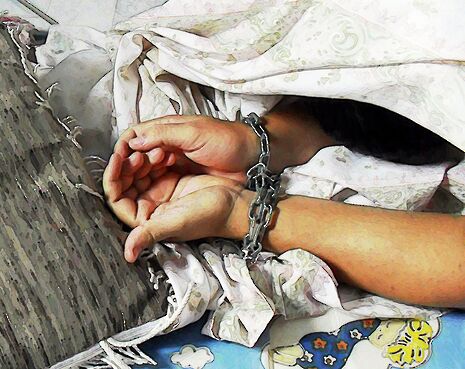Don’t ignore the victims of trafficking
Cambridge PhD student aims to raise awareness of trafficking

A University of Cambridge student has recently spoken out on the issue of human trafficking.
Pascale Reinke-Schreiber is a third year PhD student researching the interview process of trafficking victims, and wants to emphasise that “it is modern day slavery.”
Reinke-Schreiber believes prevention and identification are the two major issues that need to be addressed. With regards to identification she argues “human trafficking is a hidden crime, even if you look at the statistics you cannot be sure that this is what is actually happening.”
In 2013 there were 2,744 potential trafficking victims identified in the UK, representing a 22 per cent rise from 2012. Many victims do not come forward, for fear of being reported as an illegal immigrant, or because of their experiences of a corrupt police force in their home country.
Moreover, Loraine Gelsthorpe, a professor of criminology at Cambridge, has found that some migrant women in prison are unidentified trafficking victims. For Reinke-Schreiber, it is essential that victims are identified as soon as possible: “the trauma that victims of human trafficking experience is devastating... they need so much support when they give evidence and when they are re-integrated into society.”
To prevent trafficking, Reinke-Schreiber suggests that “we would need to address poverty and inequality...victims often trust traffickers because they hope for a better life.” Victims often come from impoverished backgrounds, with Albania, Nigeria and Vietnam being the three most common countries of origin for victims of human trafficking.
More practically, she argues that demand for prostitution and cheap labour might be addressed with appropriate domestic legislation. She points to the example of Sweden, where the purchasing, rather than selling, of sex has been criminalized.
Marta Johansson, author of Still Neglecting the Demand that Fuels Human Trafficking has argued that this has reduced instances of human trafficking in Sweden. She emphasised that “it is important Europe focuses on the issue of demand as it is what fuels human trafficking by making it profitable.”
When asked what the student community might be able to do in response to human trafficking, Reinke-Schreiber says: “the biggest thing is to raise the awareness that this exists, and to take signs of it seriously.”
She hopes that increased public awareness will put pressure on policy. Of the major political parties, only Labour and the Liberal Democrats included the issue in their manifestos for the European elections.
 News / Copycat don caught again19 April 2024
News / Copycat don caught again19 April 2024 Theatre / The closest Cambridge comes to a Drama degree 19 April 2024
Theatre / The closest Cambridge comes to a Drama degree 19 April 2024 Interviews / ‘People just walk away’: the sense of exclusion felt by foundation year students19 April 2024
Interviews / ‘People just walk away’: the sense of exclusion felt by foundation year students19 April 2024 News / AMES Faculty accused of ‘toxicity’ as dropout and transfer rates remain high 19 April 2024
News / AMES Faculty accused of ‘toxicity’ as dropout and transfer rates remain high 19 April 2024 News / Acting vice-chancellor paid £234,000 for nine month stint19 April 2024
News / Acting vice-chancellor paid £234,000 for nine month stint19 April 2024




